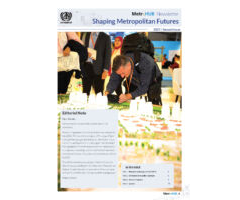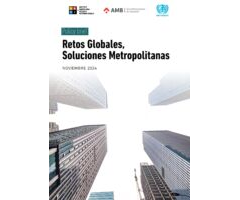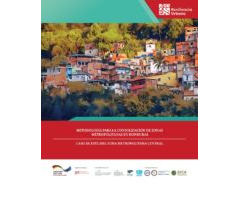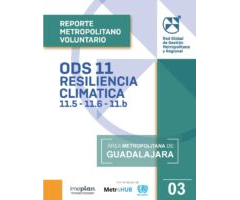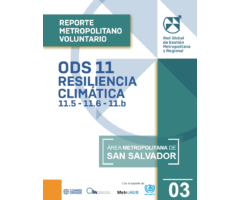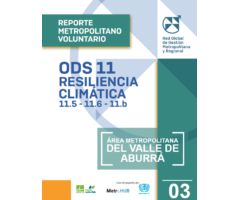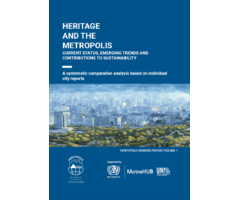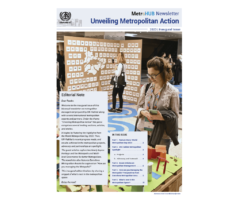Metropolitan Management

Cities and urban dynamics are evolving rapidly around the world. Between 2000 and 2015, cities grew by 1.5% a year in terms of area (EC OECD, 2020). Due to that expansion, many cities have grown beyond the boundaries of their central municipality configuring bigger and denser metropolises, understood as the city and its commuting zone, which consists of suburban, periurban and rural areas economically and socially linked to the city.
Metropolises of the 21st century are characterized for having strong interdependencies from economic, social, and environmental perspectives which need to be managed in an integrated way, based on functional territories and across both jurisdictional boundaries and the urban-rural continuum. UN-Habitat integrative approach for metropolitan management involves local, sub-national and national governments participation in metropolitan governance, metropolitan policies and legislation, metropolitan planning, and metropolitan finance and economics.

UN-Habitat has established the MetroHUB initiative for supporting sustainable development in world’s metropolises and regions, by tailoring innovative metropolitan solutions to local contexts and informing metropolises’ decision-making processes with latest research and data. UN-Habitat work on metropolitan and regional management includes: capacity development of metropolitan and regional authorities; formulation of metropolitan sectoral policies; drafting and improvement of metropolitan legal frameworks; strengthening of supramunicipal governance schemes; designing metropolitan and regional planning instruments; and innovating on financing mechanisms at metropolitan and regional scales.
Specific objectives of the MetroHUB initiative are: i) Developing and sharing information as well as enhancing capacity development and learning; ii) Establishing a strong partnership with relevant networks and creation of a platform for linking several networks; iii) Developing and gathering practical tools and cases studies, with special reference to policies, legislation, governance, planning and finance aspects: iv) Building up a dialogue among diverse actors such as professionals, civil servants, academia, civil society and private sector; v) Promoting a shared vision and consensus on crucial projects for metropolitan development; and vi) Fostering vertical and horizontal collaboration to improve metropolitan development and ensure a participatory approach for decision making by including civil society and especially vulnerable groups such as women, youth and disabled.
Services provided by MetroHUB, namely trainings, field visits, technical assistance, normative support, knowledge exchange, studies, among other, have diverse scopes and time frames according with counterparts and beneficiaries needs and requirements. These services have already been applied, among others, in the following regions and countries:
Dear Reader,
Welcome to the second edition of the MetroHUB newsletter!
Much has happened since the 1st…
Published On 21 February 2025
Downloads 21
Views 58
Metropolitan Solutions
On July 3–4, 2024, Barcelona became a hub for global innovation as experts…
Published On 5 December 2024
Downloads 14
Views 103
The document titled “Metodología para la Consolidación de Zonas Metropolitanas en Honduras” offers…
Published On 20 September 2024
Downloads 244
Views 317
Metropolitan areas with the support of UN-Habitat are joining the global movement of Voluntary Reviews…
Published On 26 August 2024
Downloads 65
Views 251
Metropolitan areas with the support of UN-Habitat are joining the global movement of Voluntary Reviews…
Published On 4 March 2024
Downloads 42
Views 264
Metropolitan areas with the support of UN-Habitat are joining the global movement of Voluntary Reviews…
Published On 4 March 2024
Downloads 36
Views 211
Heritage and Metropolis (Heritopolis) is a loose research network established during 2021 to explore…
Published On 13 January 2024
Downloads 133
Views 460
Dear Reader,
Welcome to the inaugural issue of this biannual newsletter on metropolitan management prepared…
Published On 29 December 2023
Downloads 39
Views 278


